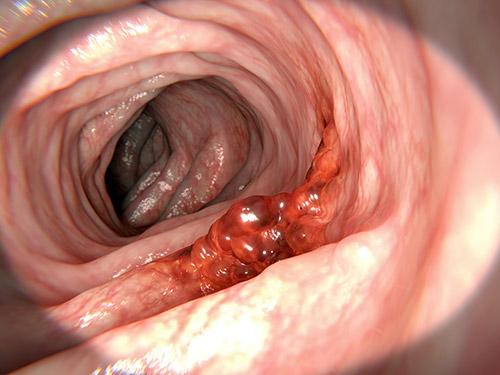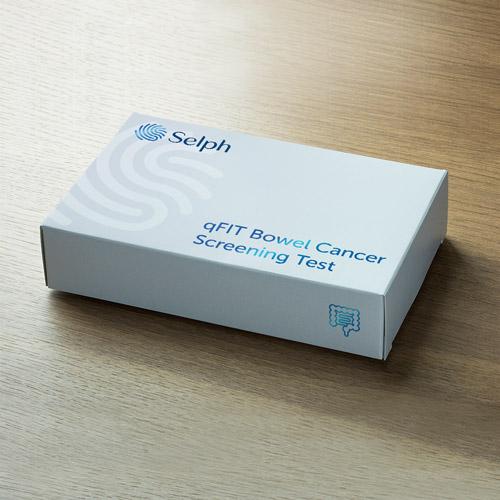Bowel cancer screening in the UK is not good enough - here’s why.
Published
Key Article Takeaways
- Bowel cancer screening reduces the risk of dying from bowel cancer.
- But in the UK, we don’t start screening until 50 which is too late.
- We should screen for bowel cancer every year but the UK only screens every other year.
- The cut-off we use to determine if a qFIT test is “positive” is six times higher than that used in other countries meaning we miss roughly half the bowel cancers present at the time of screening.
Bowel cancer is the 4th commonest cancer in the UK and will affect around 1-in-15 men and 1-in-18 women. It’s also the second commonest cause of cancer death. Sadly, the UK is lagging behind other countries when it comes to improving survival rates from this common condition. In fact, the UK ranks at the bottom for bowel cancer survival compared to other similarly economically-developed countries such as Australia, Canada, the USA, France and The Netherlands. For example, in Australia, over 70% of people diagnosed with bowel cancer survive for at least 5 years. In the USA, it’s 65%. In the UK, only 60% survive for 5 years or more1, 2.
So why is bowel cancer survival worse in the UK compared to other similar countries? A major reason is likely to be the problems with our publicly-funded bowel cancer screening programme. To understand why, you need to understand why screening is so important when it comes to surviving bowel cancer.
Why bowel cancer screening matters
Broadly, there are two ways you can be diagnosed with bowel cancer. You might develop bowel cancer symptoms, such as a change in bowel habit, stomach pain, weight loss or blood in your stool. These symptoms prompt you to see your GP or maybe even attend the emergency department and ultimately you’re diagnosed with bowel cancer.
The trouble with being diagnosed with bowel cancer because you’ve got symptoms is that by the time you get symptoms, the cancer is likely to be large and may well have spread to other organs making it much harder to treat.
Alternatively, you might have no symptoms but be diagnosed with bowel cancer by screening. If you’re diagnosed with bowel cancer through screening, the cancer is much more likely to be at an earlier stage when it’s easier to treat. In fact, you’re roughly 3 times more likely to survive if you’re diagnosed with bowel cancer through screening than because you developed symptoms3.
So how does bowel cancer screening work?
In the UK, bowel cancer screening is a two step testing process.
The first step is a “quantitative faecal immunochemical test” or qFIT test. The qFIT test is a stool test that detects miniscule amounts of blood in the stool that you wouldn’t be able to see with the naked eye. Although bowel cancer is one cause of blood in the stool, there are actually other, far more common causes. Most people with blood in the stool do not have bowel cancer. For more info on the qFIT test, please see our in depth article which covers everything you need to know.
So, if you have a qFIT test that shows blood in the stool, we need to do a second test - a colonoscopy - to actually look inside the bowel and see if it’s bowel cancer that’s causing the bleeding. Having a colonoscopy is routine but it does require taking medication to clean out the bowel, a trip to the hospital, light sedation, expensive equipment and specialist expertise from doctors and nurses. If a potential bowel cancer is seen on colonoscopy, we can take a biopsy to confirm the diagnosis and help guide treatment. A colonoscopy can also identify and remove polyps, which are the small growths that can develop into cancer over many years. So having a colonoscopy can actually prevent you from getting bowel cancer in the first place.
This is a fairly standard way to screen for bowel cancer and many other countries use a very similar process. Unfortunately, the UK bowel cancer screening program has some key differences from other countries in exactly how it's implemented.
Bowel cancer screening in the UK starts too late
In the UK, you’ll be invited for bowel cancer screening from your 50th birthday. There are two problems with this. Firstly, about 10% of people are diagnosed with bowel cancer before the age of 504. Secondly, the under 50 age group is actually the fastest growing age group getting bowel cancer5. So 1-in-10 people are automatically missing the opportunity to have their bowel cancer diagnosed by screening and this proportion is on the rise.
In contrast, the United States and Australia start bowel cancer screening from 45 years and Japan starts at 40 years.
We don’t screen for bowel cancer often enough
In the UK we only invite people to take a qFIT test every other year. Unfortunately, no test is perfect and about 1-in-10 people can have bowel cancer but have a negative qFIT test. Compared to testing every other year, qFIT testing every year reduces the risk of bowel cancer remaining undetected for a long period of time.
Many other countries, including Japan and the United States, offer qFIT bowel cancer annually.
Our qFIT “positive cut-off” is too high
Perhaps the biggest and most important difference between bowel cancer screening in the UK and other countries comes down to the interpretation of the actual qFIT test result itself. The qFIT test gives us a measure of the amount of blood in the stool. Countries need to decide what level of blood to consider as “positive” to take forward to colonoscopy.
It’s a bit like a metal detector at the airport where you can turn the sensitivity up or down. If you set a really high sensitivity, you wont miss any dangerous metal objects, no matter how small. But a lot of people will set off the detector who don’t have anything more dangerous than a hairclip. If you set the sensitivity very low, then you won’t pull anyone over unnecessarily, but you do run the risk that a small knife could get through.
The higher the amount of blood in the stool, the higher the risk of bowel cancer. If the positive cut-off is set very low then you’re unlikely to miss anyone with bowel cancer but a lot of people will be considered “positive” and have a colonoscopy when they don’t have bowel cancer. On the other hand, if you set a high positive cut-off, then far fewer people will require a colonoscopy but you’ll miss a lot of people with bowel cancer who happen not to have a high qFIT level.
In Ireland, the qFIT cut-off considered positive is 20μg/g. In Italy it’s 20μg/g. In Australia it’s 20μg/g. In the USA it’s 20μg/g. In Slovenia it’s 20μg/g. In England, it’s 120μg/g6. No, that’s not a typo. In England the positive cut-off is six times higher than that used in most countries.
With a positive cut-off of 20μg/g used in the United States, approximately 8% of people taking a qFIT for screening are invited for a colonoscopy, whereas for the UK, which uses 120µg/g as the cut-off, only 2% are invited7. Is it any wonder that in the UK, only 10% of bowel cancers are picked up by screening whereas in the USA it’s 45%8, 9? In fact, researchers estimate that by using a threshold of 120µg/g, England misses over half the bowel cancers present at the time of screening10.
Why doesn’t the UK offer a gold-standard bowel cancer screening programme?
So, why do we use such a high positive cut-off for qFIT screening in the UK? Why don’t we screen often enough and why do we start too late? It’s all down to resources, or lack of them to be specific. It’s not even about money per se.The analysis that informed our current bowel cancer screening strategy concluded that the most cost-effective strategy would involve yearly qFIT screening at a positive cut-off of 20µg/g11. But lowering the positive cut-off, starting earlier and screening more frequently will all result in more people requiring a colonoscopy. Unfortunately, the UK is not able to deliver all the colonoscopies that would be required if we adopted a gold-standard approach to bowel cancer screening.
All this may come as a surprise to many people who assume that the NHS will follow the data and do what’s best to prevent them dying from bowel cancer. In fact, they’re getting suboptimal care because that’s all the NHS can deliver. If this was at least made common knowledge then people could make an informed choice and consider paying to have screening done privately. But it’s not common knowledge. People trust the NHS to “do what’s best”. Unfortunately, in the case of bowel cancer screening, the UK is far from “best” and ultimately, it’s costing lives.
Get tips on better health
Sign up to our emails on the better way to better health.
We'll keep you up-to-date with the latest research, expert articles and new ways to get more years of better health.






